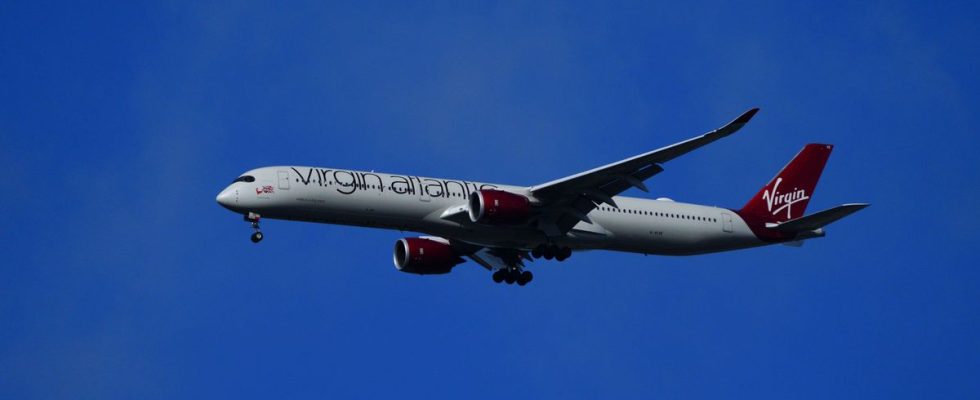It’s a first. The British airline Virgin Atlantic will operate a transatlantic flight this Tuesday powered entirely by so-called sustainable fuels. The flight will depart from London’s Heathrow airport at 12:30 p.m. (French time) and must arrive at JFK in New York at 8:30 p.m. (French time), despite criticism from several NGOs who accuse the company of “greenwashing”.
This flight will be the first “operating 100% on so-called sustainable fuels on both engines, by a commercial airline, on a long-haul route”, specifies Virgin in a press release. The company specifies, however, that no passengers will be transported or any freight loaded.
An expensive decarbonization lever
Produced from used oils, wood residues or algae, sustainable aviation fuels (SAFs) can be used in addition to kerosene in current aircraft. They are considered the main lever for decarbonization of the sector for the decades to come, but their production remains in its infancy and very expensive. Additionally, they are used in combustion engines that continue to generate CO2, with decarbonization occurring further upstream, in the act of reusing plant materials instead of extracting hydrocarbons.
The British government announced last December to support “up to 1 million pounds” for this project led by the airline in collaboration with the University of Sheffield, the American aircraft manufacturer Boeing, the British engine manufacturer Rolls-Royce and the giant BP hydrocarbons. The flight will take place on a Boeing 787 equipped with Rolls-Royce engines running only on this fuel.
“A drop of water in the ocean of hydrocarbons”
The environmental association Stay Grounded described the operation as “façade greening” in a press release on Monday. “It is no coincidence that this flight takes place two days before the start of COP28 in Dubai,” says Stay Grounded. “While the world’s attention is focused on one flight, there are 100,000 every day using fossil fuels. Substitutes are just a drop in the ocean of hydrocarbons.”
Finlay Asher, an aerospace engineer who worked for Rolls Royce, quoted by Stay Grounded, explains that CDA technology, called in English SAF, is a “technological dead end” because it cannot be developed on a sufficient scale to make a difference.
“Tackling demand”
“The two potential sources of truly sustainable aviation fuel are both severely limited in scale. The waste used as raw material for the bio-kerosene from this flight is not available in quantities large enough to have a significant impact on aviation emissions,” added Dr Doug Parr, scientist at Greenpeace UK.
“Additionally, CO2 from direct air capture and green hydrogen produced by electrolysis – both used to make e-kerosene – are very expensive to produce. (…) The only effective way to address aviation emissions in the short term is to address demand, and any suggestion to the contrary is simply utopian,” he added.

